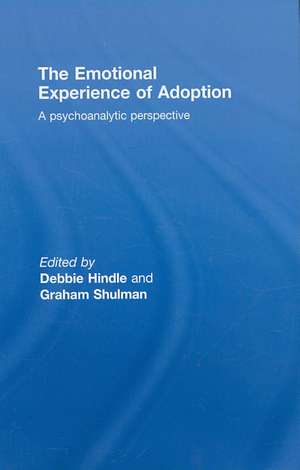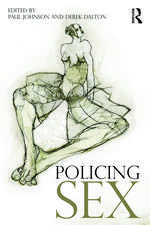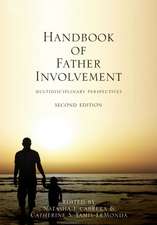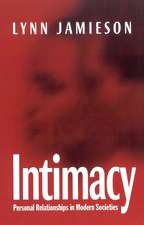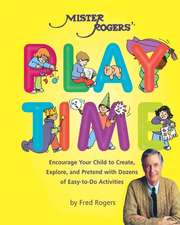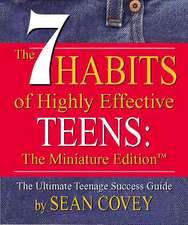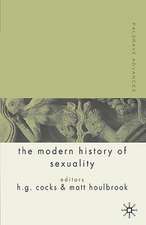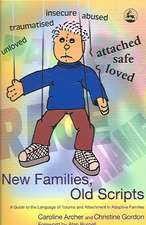The Emotional Experience of Adoption: A Psychoanalytic Perspective
Editat de Debbie Hindle, Graham Shulmanen Limba Engleză Hardback – 10 apr 2008
Drawing on psychoanalytic, attachment and child development theory, and detailed in-depth clinical case discussion, The Emotional Experience of Adoption explores issues such as:
- the emotional experience of children placed for adoption, and how this both shapes and is shaped by unconscious processes in the child’s inner world
- how psychoanalytic child psychotherapy can help as a distinctive source of understanding and as a treatment for children who are either in the process of being adopted or already adopted
- how such understanding can inform planning and decision making amongst professionals and carers.
| Toate formatele și edițiile | Preț | Express |
|---|---|---|
| Paperback (1) | 386.85 lei 6-8 săpt. | |
| Taylor & Francis – 14 apr 2008 | 386.85 lei 6-8 săpt. | |
| Hardback (1) | 1164.33 lei 6-8 săpt. | |
| Taylor & Francis – 10 apr 2008 | 1164.33 lei 6-8 săpt. |
Preț: 1164.33 lei
Preț vechi: 1225.61 lei
-5% Nou
Puncte Express: 1746
Preț estimativ în valută:
222.81€ • 230.20$ • 185.34£
222.81€ • 230.20$ • 185.34£
Carte tipărită la comandă
Livrare economică 19 martie-02 aprilie
Preluare comenzi: 021 569.72.76
Specificații
ISBN-13: 9780415372756
ISBN-10: 0415372755
Pagini: 300
Dimensiuni: 156 x 234 mm
Greutate: 0.59 kg
Ediția:New.
Editura: Taylor & Francis
Colecția Routledge
Locul publicării:Oxford, United Kingdom
ISBN-10: 0415372755
Pagini: 300
Dimensiuni: 156 x 234 mm
Greutate: 0.59 kg
Ediția:New.
Editura: Taylor & Francis
Colecția Routledge
Locul publicării:Oxford, United Kingdom
Public țintă
Postgraduate, Professional, and UndergraduateCuprins
Part I: Setting the Scene 1. Developing a curiosity about adoption: a psychoanalytic perspective 2. Why is early development important? 3. Understanding an adopted child: a child psychotherapist’s perspective Part II: Unconscious Dynamics in Systems and Networks 4. Multiple families in mind 5. Enabling effective support: secondary traumatic stress and adoptive families 6. The network around adoption: the forever family and the ghosts of the dispossessed Part III: Primitive States of Mind and their Impact on Relationships 7. The mermaid: moving towards reality after trauma 8. On being dropped and picked up: the plight of some late-adopted children Part IV: Belonging and Becoming: Transitions 9. Playing out, not acting out: the development of the capacity to play in the therapy of children who are ‘in transition’ from fostering to adoption 10. Just pretend: the importance of symbolic play and its interpretation in intensive psychotherapy with a four year-old adopted boy 11. The longing to become a family: support for the parental couple 12. Shared reflections on parallel collaborative work with adoptive families. Part V: Being Part of a Family: Oedipal Issues 13. Loss, recovery and adoption: a child’s perspective 14. Oedipal difficulties in the triangular relationship between the parents, the child and the child psychotherapist Part VI: Adoption and Adolescence: The Question of Identity 15. Deprivation and development: the predicament of an adopted adolescent in the search for identity 16. Idealisation and overvalued ideas Further Reflections 17. A cautionary tale of adoption: fictional lives and living fictions Final Thoughts
Notă biografică
Debbie Hindle is Head of the Clinical Training in Child and Adolescent Psychotherapy at the Scottish Institute of Human Relations, and also works in the Looked After and Accommodated Child and Adolescent Mental Health Service in Glasgow.
Graham Shulman is a consultant child and adolescent psychotherapist who currently works in NHS Lanarkshire. He was until recently Senior Tutor for the Clinical Training in Child and Adolescent Psychotherapy and Organizing Tutor for the Therapeutic Skills with Children and Young People Course at the Scottish Institute of Human Relations. He is Joint Editor of the Journal of Child Psychotherapy.
Graham Shulman is a consultant child and adolescent psychotherapist who currently works in NHS Lanarkshire. He was until recently Senior Tutor for the Clinical Training in Child and Adolescent Psychotherapy and Organizing Tutor for the Therapeutic Skills with Children and Young People Course at the Scottish Institute of Human Relations. He is Joint Editor of the Journal of Child Psychotherapy.
Recenzii
'An interesting, informative and enjoyable read, the volume conveys core psychoanalytic ideas relevant to adoption and insights into therapeutic processes in a very vivid and accessible fashion.' - Malcolm Hill, Glasgow School of Social Work, UK
'Focusing on the trauma experienced by most adopted children prior to being taken into care, this book conveys the damage these children have sustained and the impact of this on their new family and the professionals involved. Psychoanalytic ideas both help understanding and provide a means of amelioration by offering treatment possibilities and a consultation framework. An accessible but painful book to read.' - Judith Trowell, West Midlands Care Service Improvement Partnership and University of Worcester, UK
'Focusing on the trauma experienced by most adopted children prior to being taken into care, this book conveys the damage these children have sustained and the impact of this on their new family and the professionals involved. Psychoanalytic ideas both help understanding and provide a means of amelioration by offering treatment possibilities and a consultation framework. An accessible but painful book to read.' - Judith Trowell, West Midlands Care Service Improvement Partnership and University of Worcester, UK
Descriere
This book demonstrates how psychoanalytic understanding and treatment can contribute to thinking about and working with adopted children and their families. It illustrates how psychoanalytic psychotherapy can help both as a treatment and as a distinctive source of understanding for children who are either in the process of being adopted or already adopted.
